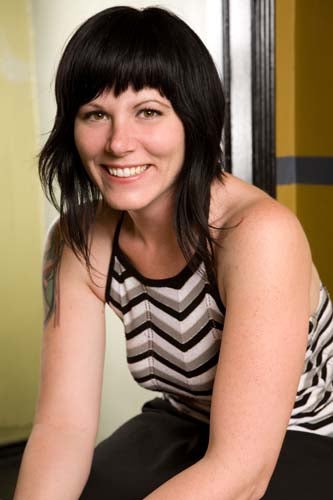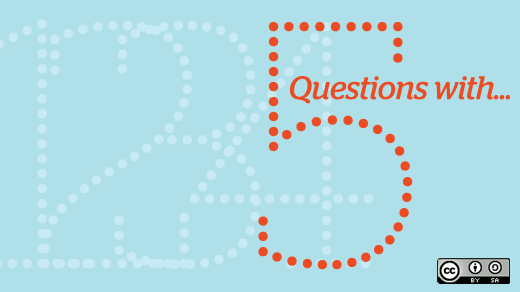Open source dating you say? We'll get there. First things first, what an impressive resume. I discovered Micki Krimmel on Twitter (@Mickipedia) and was immediately impressed by her breadth of experience in community building.

Krimmel is the founder and CEO of NeighborGoods.net, a community where you can save and earn money by sharing stuff with your neighbors. She has almost a decade of experience in building online communities. It started at Participant Media, where she helped build an online community for Al Gore’s "An Inconvenient Truth."
What I realized as I started to learn more about Micki's work was that she's been doing things the open source way for about as long as I have--she just doesn't call it that. Krimmel is talking about participation and humility in a different context, but it means the same thing. Let's find out more.
Five questions with Micki Krimmel, Founder & CEO, NeighborGoods.net
1) What one big opportunity, outside of technology, has the best chance of being solved the open source way (i.e., through collaboration, transparency, sharing, meritocracy, rapid prototyping, community, etc.)?
I think we are at the beginning of a huge shift in our economy where we are trading in the mindless consumption of the 20th century for a more sustainable, collaborative model where we value community and access to the things we need over ownership. In recent years, people have become increasingly frugal and aware of the impacts of their consumer habits. Our strained pocketbooks and our values as a society no longer support the conspicuous consumption that has driven our economy for decades. Simultaneously, we have become increasingly comfortable sharing and connecting with others online. This has created a fantastic opportunity for new technologies to emerge to help facilitate sharing of resources. And emerge they have! Countless services such as CouchSurfing, Bright Neighbor, Chegg, Turo (formerly RelayRides), and NeighborGoods have launched recently to help people share rooms, cars, textbooks and household goods.
Two books have recently debuted analyzing this trend, What's Mine is Yours: The Rise of Collaborative Consumption, and The Mesh. A recent study published by Latitude Research and Shareable Magazine shows that our increasing use of online sharing tools is a solid predictor of increased offline sharing: "75% of participants predicted that their offline sharing will increase in the next 5 years."
I know it seems overly optimistic, but I believe the more opportunities we create for people to share and connect instead of spend and purchase, the happier we will be. Now that's a business model built the open source way.
2) What are some of the unexpected things you've discovered from NeighborGoods experiences that have strengthened the communities where people live?
The environmental and financial benefits of sharing physical goods instead of buying new are obvious. And honestly, being more sustainable and saving a few bucks is reason enough to borrow a lawnmower instead of buying a new one. But it's not the reason people are sharing on NeighborGoods. By far and away what we hear from our members is that the primary benefit they receive from sharing is meeting their neighbors. In my own neighborhood, our sharing group has done wonders to strengthen our community. With a vacuum cleaner here and a wheelbarrow there, we've created a really solid support group in our neighborhood. We help each other move furniture, watch each other's pets, and check the mail when someone is traveling. NeighborGoods helped create a small town feeling in the middle of Los Angeles.
3) Thinking about your role in Al Gore’s An Inconvenient Truth, what is the most difficult thing about building communities, online and what advice would you share with others?
The biggest mistake is thinking you can "build a community" to start with. Especially when you're dealing with an issue like global warming, it's silly to think you can spark a movement from scratch. The key is to figure out which communities are already aligned with your sensibility and give them a way to take up your cause for you as a part of their own identity. So you're not asking people, "Hey, come be a part of our new community." Instead you're saying, "Hey, look! We're a part of your community. We're just like you. We created this space to help you connect with your community."
4) What attributes from the open source way stand out as pillars for community building, online and in real life?
Honestly, all the pillars of what you dub the open source way (i.e., collaboration, transparency, sharing, meritocracy, rapid prototyping, community) play a role in community building. There is a certain sense of humility underlining all those terms that is vital to fostering any community. The word community gets tossed around a lot these days, but it's not the same thing as an audience or customer base. Community requires the participation of its members and that requires humility on the part of the organizers.
5) How do you apply the open source way in your everyday life?
A few years ago, I experimented with what I called The Open Source Dating Project. The idea was that I would go on dates and post all the details so people could vote for who got a second date. It was more of a thought project than anything real since I didn't quite have the nerve to do it. But yeah, I would say that I incorporate the open source way in a lot of what I do in everyday life. I decided early on with all this social media stuff that I wouldn't have much of a filter. I try to be as transparent and authentic as possible with how I present myself on the web. And that openness has provided countless opportunities for me to make a name for myself and to meet amazing and interesting people. I also really enjoy the process of collaboration. I consider myself lucky every day to be surrounded by smart and talented people who are willing to share their knowledge and ideas with me. I try to always do the same.
Read more
- Krimmel blogs for Mickipedia.com, The Huffington Post, Shareable.net, and contributes to Worldchanging.com
- She co-authored the award winning book, Worldchanging: A User’s Guide to the 21st Century
- Follow her on Twitter: @Mickipedia



Comments are closed.